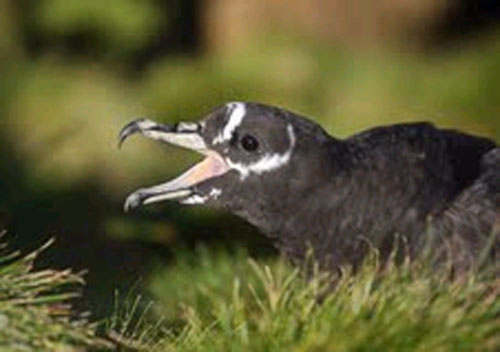Peter Ryan (FitzPatrick Institute, University of Cape Town, Rondebosch, South Africa) and colleagues have published open access in the journal Marine Ornithology on the increasing breeding population of ACAP-listed and Vulnerable Spectacled Petrels Procellaria conspicillata, as well as information on population sizes of three albatross species breeding on Inaccessible Island.
The paper’s abstract follows:
“Inaccessible Island, in the Tristan da Cunha archipelago, is the sole breeding site of the Spectacled Petrel Procellaria conspicillata. The island also supports globally important populations of four threatened seabirds, as well as populations of other seabird species. A seabird monitoring protocol was established in 2004, following baseline surveys of most surface-breeding species in 1999. For the species monitored, we report population trends that are based on visits in 2009 and 2018. Populations of most monitored species appear to be stable or increasing, including three albatross species currently listed as Endangered or Critically Endangered. However, numbers of Northern Rockhopper Penguin Eudyptes moseleyi may have decreased slightly since 1999, and numbers of Antarctic Tern Sterna vittata have decreased since 1982. The population of Spectacled Petrels is estimated to be at least 30 000 pairs and continues to increase since feral pigs Sus scrofa died out on the island in the early 20th century. We describe a new monitoring protocol for Spectacled Petrels that will be easier to repeat and implement and that should provide a more sensitive measure of future population changes.”

A Spectacled Petrel calls on Inaccessible Island, photograph by Peter Ryan
Read an earlier ALN post on the 2018 Inaccessible survey.
Reference:
Ryan, P.G., Dilley, B.J. & Ronconi, R.A. 2019. Population trends of Spectacled Petrels Procellaria conspicillata and other seabirds at Inaccessible Island. Marine Ornithology 47: 257-265.
John Cooper, ACAP Information Officer, 19 October 2019

 English
English  Français
Français  Español
Español